Case studies
> Industrial
JARVIS
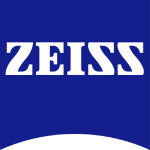
Carl Zeiss is a company that manufactures lenses for both eyeglasses and sunglasses. Its products include monofocal, bifocal and progressive lenses, as well as photochromic (which change color based on sunlight) and polarized lenses.
Zeiss needed a web-based tool to perform complex calculations and simulations of lens transmission and reflection, based on physical measurements. The application had to generate an eligibility document according to specific regulations (ISO, American, Australian and Chinese standards). The main challenge was to reconstruct the functionality of a complex calculation file previously used through reverse engineering logics and complete the missing features.
We worked on a platform hosted in Azure, using .NET 6 for the back-end (on Azure Function App) and Angular for the front-end, hosted on Azure App Service. The database used is Cosmos DB with APIs compatible with MongoDB. The backend is secured via an API Gateway that requires authentication via Azure Active Directory (Entra ID), thus ensuring a high level of security. Significant parts of the front end have been rewritten, fixing bugs and improving the overall stability of the application.
Moving from a VBA-based system for Excel to a professional web-based solution brought the following advantages:
> Improved efficiency: automation of data collection and analysis, reduced time needed to handle large volumes of information and reduced human errors;
> Data accessibility: lens data are easily accessible and searchable, thanks to a dynamic catalogue and advanced filters;
> Simplified management: The use of dedicated software simplifies data management and calculations, making the process faster and less prone to complications;
CRM for smart and effective management of construction sites and customers
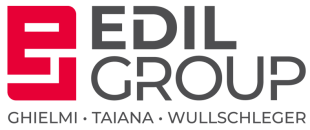
Edil Group is a company operating in the construction and marketing of building materials. They offer a wide range of services including civil and industrial construction, renovation, electrical installations, as well as consultancy and customised furnishings.
Edil group, a company active in the construction sector, was already using Business Central for the management of company data but needed to integrate a CRM that would simplify and standardize internal processes, in particular the management of customers and sales offers. One of the main obstacles was the habit of end users, many of whom were not tech-savvy, to use traditional methods such as phone calls or paper documents, making it difficult to transition to a fully digital environment. The CRM therefore had to be simple and intuitive, as well as integrate seamlessly with Business Central, to allow fluid management of customer interactions, the sharing of sales opportunities between the various salespeople and the evaluation of salespeople’s performance.
The solution adopted leveraged the existing instance of Business Central as master data to manage customers and contacts, ensuring a solid foundation that users already knew. The integration between Business Central and CRM has been largely customized, using Azure and Power Automate to automate some business processes and connect the various systems. In particular, some tables have been integrated through Virtual Entity, while others have been developed with customized solutions to adapt to the specific needs of the company.
From a technical point of view, the CRM was developed on the Dynamics 365 platform, taking advantage of the advanced features of Power Platform to ensure flexibility and customization. Integrations were created with Sharepoint for document management and with Outlook to track email communications, which made it possible to centralize all customer information in a single platform. In addition, the adoption of Power Automate has made it possible to implement automated processes and generate dashboards for more efficient monitoring of business activities.
A further development underway concerns the integration of InfoManager, which allows the CRM to manage opportunities related to construction sites in a structured way, integrating them with the information already present in Dynamics 365. This integration will be carried out through APIs exposed by the InfoManager system, with custom fields to meet Edilgroup’s specific needs.
The main result of the project was the complete digitization of processes that were previously managed manually and on paper, greatly improving the company’s operational efficiency. Thanks to CRM, Edilgroup now has the ability to centralize all customer information, from the first interactions to the after-sales phase, in a single platform. This has reduced the risk of errors related to manual data management and improved the traceability of information.
In addition, the adoption of a simplified and intuitive user interface has ensured access even for less experienced users, allowing a large pool of employees to use the CRM with ease. Sales opportunity management is now fully digitized, allowing for greater collaboration between sales reps and improving performance evaluation. Finally, future integration with InfoManager will make it possible to keep track of opportunities related to construction sites, also centralizing this information in the CRM for more efficient management of the sales process.
In summary, the project represented a fundamental change for Edilgroup, which has seen a significant optimization of its business processes, an improvement in operational efficiency and greater satisfaction from end users thanks to the adoption of more advanced and integrated technologies.
Increased production efficiency

Repower is a company that has been active in the energy sector for over 100 years, with headquarters in Poschiavo, in the canton of Graubünden, Switzerland. The company operates mainly in Switzerland and Italy, covering the entire energy chain.
Repower needed to create a dedicated portal for consultants to manage prospect customers, billing and contract proposals. The project required a scalable and flexible solution that could adapt to changing requirements and integrate different business functionalities.
The technical solution adopted involved the development of a back-end in .NET 8, with SQL Server as the database and Redis for cache management. Communication between the various components was optimised with RabbitMQ, while integration and unit tests were handled with SpecFlow. For the front-end, we used Angular 17, with the implementation of custom libraries developed in-house by Repower, and differentiated the management for desktop and mobile devices.
The project achieved all its objectives, solving complex challenges. The new platform allows Repower’s consultants to manage operations more efficiently, improving productivity and the user experience.
NAVIGA

Coface is one of the world’s leading companies in commercial credit insurance. Founded in France in 1946, Coface has over 75 years of experience and an extensive international network
COFACE was faced with two main challenges the maintenance and evolutionary development of legacy software in Java, which had been used for over 20 years, and the creation of a new project, ‘Naviga Revamp‘, which required the rewriting of an existingdesktop application written in Power Builder. The existing system handled a wide range of bonding tasks and required modernisation with more modern technologies such as Quarkus and Vue.js.
For legacy bonding projects, we used Java/J2ee with anEJB3 architecture architecture for the back-end and business logic, supported by WebLogic as application server and PL/SQL for logic management on the Oracle database. On the front-end, the integration of Struts and PrimeFaces technologies optimised the presentation and control part.
In the ‘Naviga Revamp‘ project, we adopted a microservices approach with Quarkus for the back-end, exposed via a REST API, and Vue.js for the front-end. The team worked on IntelliJ, testing and executing integrations locally before moving the solutions to dedicated environments.
The first goal of the project is to bring the new registry into production by October 2024, using modern technology to improve the efficiency of bonding management. This will lead to a significant optimisation of COFACE’s business process, impacting all bonding-related operations.
HSENI & FairValue Flow
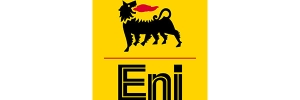
ENI S.p.A. is a global energy company based in Rome, Italy, founded in 1953. It operates in 61 countries and employs over 30,000 people. Originally focused on oil and gas, ENI has evolved into an integrated company driving the energy transition towards sustainability.
The HSENI project was responsible for ensuring safety at work for ENI through a software platform that supported several key functionalities, such as checklists, inspection reports(SCC), and the management of reports of hazardous conditions or actions. The main challenge was to integrate the system with external services such as IRIDE toautomate reporting and synchronise information between several systems.
ENI was also faced with the need to modernise the management of Finance and Accounting tasks related to fair value for several group companies.
Blazar’s task was to manage the evolutions of the backend part of the three platform components, together with some libraries that simplify interaction with it.
The platform is composed of microservices running on Kubernetes; the back-end part is done in C# with the database managed with PostgreSQL, while the front-end part of the platform is done with React.
We have also developed a solution that utilises PowerApps to create an intuitive and easily accessible user interface. This interface allows users to approve tasks, download CSV/XLSX reports and edit data directly within the app. The database chosen to support the frontend is Dataverse, which is integrated with SharePoint for document management.
To manage data flows between frontend and backend, we implemented Power Automate and developed pipelines on Azure DataFactory for managing of bulk updates andinteraction with Databricks, where methods written in Python process the data and generate the CSV files required for accounting reporting. In addition, PowerBI has been integrated to offer users visual and numerical reports updated in real time.
The project has significantly improved ENI’s incident prevention capability, thanks to an automated system that quickly and securely manages reports and safety checklists. The platform optimised the reporting and control processes, reducing response times and improving risk management. The system allows compliance with corporate security regulations to be maintained in a more efficient and organised manner.
In addition, through collaboration with the client, ENI now has a centralised, automated portal that facilitates the control of the fair value process. Users can edit and manage values in bulk directly from the app, avoiding errors in manual file creation and significantly improving closing times. The project also includes integration with SAP for automatic data transfer, further simplifying the month-end accounting process.
TPE
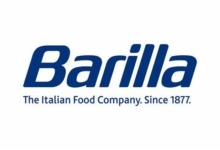
Barilla is an Italian company founded in 1877, a leading manufacturer of pasta and food products with a strong international presence and a commitment to sustainability and quality.
The client needed a modernization of its day-by-day work management systems for the various departments. The application consisted of old SharePoint forms, Excel files, and e-mails that governed the process of assessing the feasibility and cost of Barilla’s business initiatives (e.g., launching a new pasta format, re-packaging a pack of sauces for a specific market…), leading to several inefficiencies.
The developed solution is named TPE (Trade Portfolio Enhancement) and involves different business departments (Marketing, Supply Chain, Finance). It is a platform developed mainly on Model-Driven App based on Dynamics CRM, without standard forms. Instead, three specific forms use integrated Canvas App.
With this new structure, different departments are now guided by specific workflows that influence their future decisions: validating information, estimating costs, and making strategic decisions.
All customizations are custom: on the back-end, Plugins manage CRUD operations on records, while Power Automate coordinates approval workflows across the various process gates. On the front-end, JavaScript manages controls on fields and forms, adjusting visibility, blocks, precompilation, and messages. In addition, custom buttons have been developed for operations such as copying records, reassigning, stopping, and reactivating processes. Canvas Apps embedded in entity forms provide an aggregated overview of data related to the current project.
One of the most significant issues was optimizing integration logic across departments, ensuring a smooth experience for users and reducing request processing time. Among the challenges faced, advanced customization of interfaces and management of complex workflows required tuning work to ensure stability and performance, while ensuring a polished design and intuitive interface for a better user experience.
EDMS

Ansaldo, founded in 1853 in Genoa, is a major Italian company Initially specializing in the production of steam locomotives and railway equipment, it later expanded its activities into areas such as steel and shipbuilding.
The EDMS project was developed to modernize the client’s document management by replacing an on-premise SharePoint-based solution with a new cloud-based architecture. The previous system had limitations in terms of approval management, security, and integration with advanced tools.
The main objective was to implement a system with a structured approval workflow, where different actors would be able to approve or reject documents in a traceable and secure manner. In addition, a solution was needed that would allow the migration and organization of more than 40,000 existing documents, while ensuring efficient interaction with users via AI chatbots and advanced search.
The adopted solution is based on a distributed architecture with:
- Front-end: SharePoint Online with custom interface developed in React.
- Back-end: Process automation using Power Automate.
- Permission Management: Implemented through hidden SharePoint lists.
- AI & Search: An AI chatbot trained to answer questions about historical documents, supported by an advanced document search engine.
- Approval Flow: Involves four main actors, with three mandatory and one optional approval.
- Digital Signature: Integration with Adobe Sign, orchestrated through Azure Functions and an internal SFTP infrastructure for document transfer and signing.
Results achieved by the project include:
- Automation and optimization of the document approval process, reducing the time required for validation.
- Simplified interaction with the system through a modern user interface and advanced search tools.
- Better management of permissions through a SharePoint-based control system and Power Automate.
- Migration of more than 40,000 documents to a new structured environment, improving access and consultation.
- Integration of digital signature for official documents, reducing the risk of tampering and improving security.
- Improved user experience with AI chatbots capable of providing immediate responses on document information.
OPUS
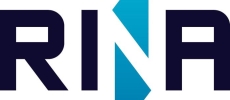
RINA, founded in 2000 in Genoa, is a multinational group specializing in ship classification, certification, inspection and engineering consulting, with a focus on sustainability and innovation
The project is a management system with FrontEnd Angular and backend .NET Framework 4.7.2 with some implementations via Azure, specifically: Azure B2C for authentication of customers external to RINA.
On the frontend side, new pages were implemented in Angular 14 for login management, customizing Azure pages for RINA. On the backend side, MSAL was used for authentication. In addition to the main management system, there are two web portals for mobile users developed in ReactJS, where frontend configurations for B2C were added, using the same login pages as the main management system. Microsoft GraphAPI was also integrated to obtain data from the B2C directory in order to manage users during the login request.
From OPUS management, internal users can authenticate using Azure AD (Entra ID), while external users can log in via the service/provider of their preference (Gmail, Facebook, etc.). A comprehensive user management page has been developed for OPUS administrators, which allows them to invite external users who have not yet registered with B2C, directly sending them an e-mail with the registration link and all the necessary functionality to manage them manually.
Corporate Software and Policy Approval
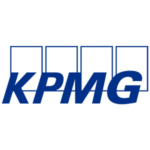
KPMG is a global network of independent firms offering audit, tax and business advisory services. Founded in 1987, it operates in over 140 countries with a strong commitment to innovation, quality and sustainability
The project included the inclusion in the team of a Demand Manager in the PMO office, with the task of collecting requests for evaluation of each software made or purchased by KPMG. This evaluation involves verifying that it adheres to KPMG Italia and KPMG Global company policies released in the different areas of architecture, security, legal, privacy.
If a software technically adheres to corporate policies, it must also pass the budget assessment. Finally, if it is not surveyed in the vendor registry it must be entered by procurement.
The Demand Manager can be defined as the facilitator of these assessments, being in charge of gathering all documentation, internal or external, useful to the technical teams to complete their checks.
In the PMO, Demand Managers use JIRA, Confluence, MS Office (Excel, Word, PowerPoint) to perform the functions expected of their role.
Through this experience, significant goals were achieved, including the efficient management of software assessments to ensure compliance with KPMG Italy and KPMG Global corporate policies. The implementation of procedures made it possible to optimize document collection, facilitating the work of technical teams and ensuring that software met high standards of architecture, security, legal and privacy. In addition, the use of JIRA, Confluence and MS Office tools supported the Demand Manager in organizing activities, improving collaboration and transparency among the different stakeholders involved.
> Automotive
Innovation and continuous updating in vehicle diagnostics software

BMW is a German manufacturer of luxury cars and motorbikes founded in 1916. BMW’s model range includes sports cars, saloons, coupes, cabriolets, roadsters, SAVs (Sport Activity Vehicles), SACs (Sport Activity Coupes), electric Grand Tourers and plug-in hybrids. BMW is also a manufacturer of aircraft engines.
BMW is committed to providing its customers, garages and authorised mechanics with an up-to-date vehicle diagnostics software always up-to-date, enriched with new features and actively supported for all kinds of problems.
The project involves large-scale programming to interface different backends, using state-of-the-art technology Blazar Group, in collaboration with international teams, is committed to keeping BMW software innovative and customer-friendly.
> Agile Methodology: The agile approach, in particular the LeSS framework, guides the development teams, coordinated by scrum masters and in constant dialogue with BMW Product Owners. Atlassian tools support the work, while MS Teams facilitates communication. Each sprint focuses on three main areas: new feature development, bug fixing and feasibility studies to anticipate future trends and meet customer expectations.
Technologies:
> .NET Framework 4.8
> C#
> MySQL
> Oracle
> MS Teams
> Atlassian Suite (Jira, Confluence, Bitbucket)
The results obtained were:
> Continuous Innovation: BMW’s diagnostic software is constantly evolving, introducing state-of-the-art solutions for more effective vehicle maintenance.
> Quality and Reliability: Timely bug fixes and feature updates ensure a high standard of quality and reliability.
> Proactivity and Anticipation: Proactive analysis of potential new features ensures that BMW remains at the forefront of the automotive industry.
Digital transformation in CRM for global customer management
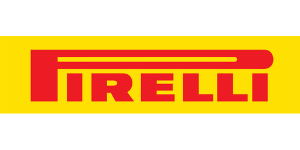
Pirelli is an Italian company specialising in the production of tyres for motorbikes, cars and bicycles. The company has 18 production plants, located in Italy and abroad. Pirelli is constantly engaged in developing innovative solutions to meet the most specific mobility needs of the end consumer.
Pirelli set itself the ambitious goal of developing and maintaining an advanced CRM system with a database 500 GB of information on 4 million customers from 120 countries. The challenge was to integrate a heterogeneous data stream from different platforms using market-leading integration systems.
The Blazar team implemented innovative solutions for the Dynamics365 Middleware, supporting the transition to the new CRM with targeted developments:
> Data Import Portal: An intuitive user interface for efficient and secure data import into CRM.
> GDPR Portal: An EU-compliant system for the complete deletion of data, guaranteeing respect for customers’ privacy.
> Contact Optimisation: An advanced contact address reclamation and enrichment mechanism, exploiting Google’s API for georeferencing and data enrichment.
Technologies:
> Dynamics365
> Tibco
> Scribe
> SSIS
> Pentaho
> Google API
The advantages obtained are:
> Operational Efficiency: Pirelli’s CRM is now more efficient, with a simplified and secure data import process.
> Regulatory Compliance: The system fully complies with GDPR regulations, giving customers peace of mind about the management of their data.
> Data Quality: The accuracy and richness of contact data has been greatly improved, allowing for more effective segmentation and targeting.
> Fashion
Optimisation of order management processes
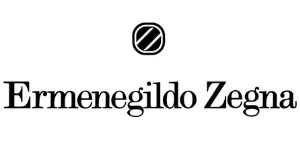
Ermenegildo Zegna is an Italian luxury fashion company founded in 1910 in Trivero, Piedmont. The company is one of Italy’s most internationally renowned businesses. The Zegna brand is a global leader in luxury menswear.
Ermenegildo Zegna was faced with a challenge: to effectively manage support requests (ticket) related to the application. This process required in-depth analysis planning for developments and releases of the application itself. Both a functional and technical approach was needed to ensure constant support. The consultants from Blazar Group were called in to solve this challenge.
The team at Blazar Group designed and implemented a solution aimed at improving the management of orders from Ermenegildo Zegna boutiques. The solution provides a streamlined and automated process, reliable data, constant monitoring of orders and allows users autonomy in the execution of procedures.
Technologies used:
> Oracle Data Integrator (ODI): For data integration from the IBMi database;
> TIBCO: Management of external orders;
> Oracle: Database for entering and managing order data.
The main objective of this project was to optimise order management for Ermenegildo Zegna, guaranteeing efficiency, accuracy and a constant product presence in the boutiques;
Blazar Group has been working on analysing, entering and monitoring orders. This project represents a strategic investment, improving collaboration with boutiques, improving operational management of orders and staff autonomy.
Intuitive and responsive timesheet

Prada, founded in 1913 in Milan by Mario Prada, is a renowned Italian fashion house specializing in luxury items such as handbags, clothing and accessories. Initially specializing in luxury leather goods and accessories, Prada has become a global icon in the fashion world. Its original boutique is located in the prestigious Galleria Vittorio Emanuele II in Milan.
The project involves the development of an application for managing the client’s designer timesheet. The system allows the daily entry of working hours, enabling the management of automated confirmations, changes and notifications.
The main objective was to introduce a new system for the management of the consuntivation of working hours which must ensure:
- An intuitive interface usable on desktop and mobile.
- A permission system based on five user profiles (Admin, Owner, Designers, Read-Only, Secretary).
- A structured workflow for managing approvals and notification thresholds.
- Integration with global and local holidays for more accurate management of working hours.
- Automation of notification processes and data management using Power Automate.
The implemented solution is based on:
- Front-end: Power Apps, with an adaptive interface for desktop and mobile.
- Back-end: Power Automate flows for business process management.
- Data management: Dataverse for storing information on projects, work hours and leave.
- Automated notifications: Power Automate flows to send daily, weekly and monthly alerts on hours logged and thresholds exceeded.
- User and Permit Management: Role system with differentiation between administrators, project owners, planners and secretary.
- Integration with Office 365: For managing license allocation and sharing the app with users.
Results achieved through the project include:
- Improved efficiency in managing designer work hours, with a centralized and automated system.
- Better control over projects, through advanced permit management and approval workflows.
- Reduced manual errors, through automatic notifications and structured management of holidays and thresholds.
- Simplified access to data, with intuitive dashboards and advanced search tools.
- Integration with the old system, ensuring a smooth and lossless transition of data.
- Improved scalability and accessibility by migrating to Dataverse and using Power Apps and Power Automate.
The impact of the project has led to significant improvement in the time management of designers, optimizing workflow and increasing overall client productivity.
GEMINI
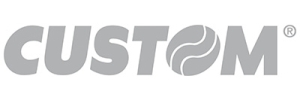
Custom S.p.A. is an Italian company founded in 1992 and specialises in the design, manufacture and distribution of printing solutions and automation systems for various sectors, including retail, industry, transport and logistics, gaming, sport and entertainment.
> Loro Piana – The project for Loro Piana involved the creation of a mobile application that would allow users to make purchases, integrating and updating existing services for managing payments in stores. A crucial goal was to migrate the existing web application to a mobile platform, maintaining the stability of the payment services already implemented and ensuring the correct management of transactions. Having recently arrived on the project, the main focus initially was on maintaining the existing application and fixing bugs, while the development of the mobile app was planned as a future step.
> Gemini App – The Gemini project involved porting the physical cash register, managed through a CRM, to a mobile app capable of supporting country-specific configurations and the functionalities required by individual customers. This porting posed a significant challenge, as configurations varied greatly between countries, requiring special attention to adapt functionality and ensure that the system was scalable and usable globally. The project also involved the transformation of an old service called Beanstore into Gemini, a new product that was more flexible and aligned with customer needs.
> Loro Piana – For the development of the mobile application and the management of payment services, an approach based on Java 17 and the Spring Boot framework was chosen, using a microservices architecture. This has allowed us to develop a highly scalable and flexible system, capable of supporting both existing payment functionalities and expansion towards new services requested by the customer. Working within a managed cloud environment with Ansible AWX, the team ensured the correct management of machines and data via SQL. At the moment, the work has focused on fixing bugs and implementing new services, pending the completion of the migration to the mobile platform.
> Gemini App – The solution for Gemini followed a development logic based on microservices, allowing to create a common part for all customers, while maintaining a monolithic architecture for the customizations required by individual countries. The working methodology followed was Agile, with the use of JIRA to track development and maintenance activities. The backend was developed using Spring Boot, and supporting technologies included Jenkins for builds, SSH for server management, and Ansible for automated configuration of environments. The team also made use of tools such as Oracle and Altova MapForce to manage data mapping between the various systems.
For Gemini, migrating Beanstore’s functionality to the new platform required a progressive rollout, releasing new features every two-week sprint. Thanks to the iterative approach, the team was able to meet the client’s critical deadlines, which had set a mandatory completion date of October.
> Loro Piana – The main goal of the project is to create a mobile application that allows users to make purchases directly from their smartphones, without the need to use a computer or physically go to stores. At the same time, the existing application for managing payments at the point of sale has been kept stable and updated. The project aims to complete the migration to the mobile platform, guaranteeing the customer a modern, efficient and accessible purchasing system.
> Gemini App – The team’s main achievement was the completion of the porting of physical checkout management features to the new Gemini mobile app, adapted to the different configurations required by individual countries. For the client Bulgari, the project saw the app put into production without significant bugs, ensuring a smooth transition from the old system to the new one. Each two-week sprint resulted in the release of new features or the integration of new countries, meeting the deadlines set by the customer and ensuring a smooth implementation.
In summary, the Gemini project has allowed Custom to provide a more flexible and scalable product, capable of adapting to the specific needs of each customer, while the project for Loro Piana has laid the foundations for a complete digitization of the purchasing process via mobile devices.
Optimisation of order management processes
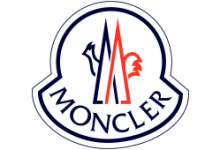
Moncler, founded in 1952 in France, is a luxury brand famous for its high-quality down jackets. From a manufacturer of mountain equipment, it has transformed into a global fashion icon under the leadership of Remo Ruffini.
Right now, there are two main initiatives underway for Moncler, both geared toward converting the website to a Progressive Web App (PWA). The first project involves the transition of the existing website to a PWA, while the second involves the design of a new site with a completely revamped design, also based on PWA.
Regarding the first project, originally developed by a different team, the initial work focused on fixing bugs and aligning the design with the version currently in production, with the goal of ensuring operational stability and aesthetic consistency.
In the context of the second project, the basis of the work is derived from the first. However, the focus is on a totally different design and the integration of novel features in line with customer requirements.
The technical architecture of the project includes a frontend developed with React 18, a backend based on Node.js, and integration with Contentstack and Salesforce, Moncler being an ecommerce.
The methodologies adopted include iterative development, with a focus on pixel-perfect design starting with Figma, and a focus on code quality, accessibility and performance. My specific activities have included:
- Translation of design from Figma to code, ensuring visual accuracy (pixel perfect).
- Bug fixes both on the frontend side and in integration with the CMS.
- Implementation of new features.
- Creation of new views and animations.
- Synchronization of fixes made in the first project with the second, to maintain stability and continuity.
The first goal was to stabilize the base of the first project, fixing various bugs and ensuring that the design was consistent with the production version. Once these fixes were completed and approved, the next step was to transfer them to the second project and then focus on developing the new features and updated design.
A key aspect of the work was the high attention to detail required by the client, given Moncler’s prestigious reputation. This involved a constant effort to ensure both aesthetic and functional quality, ensuring clean code, accessibility, and a flawless user experience.
> Finance
Improving the efficiency of internal insurance processes

Eurizon is an asset management company and one of the leading asset managers in Europe. It offers a range of products and services to meet different needs and investment objectives.
Eurizon Asset Management has entrusted Blazar Group with the development of different software solutions based on Microsoft technologies. The collaboration focuses on a number of projects aimed at improving the efficiency of internal processes, data analysis and portfolio management..
Technologies used:
> ASP.NET;
> Windows Services;
> SmartClient;
> Data Quality;
> SQL Server (T-SQL, job, DTSX)
> Time series management application: allows the complete management of time series for funds and securities, including CAX (Corporate Actions) automates the import/export of data from different sources, offers advanced tools for monitoring market trends and the analysis of time series using mathematical formulas. Finally, the back office uses it to monitor market trends and control the evolution of time series.
> Institutional portfolio management application: allows the complete management of institutional portfolios. It offers powerful functionalities for the analysis and simulation of financial scenarios and enables the comparison of portfolios with benchmarks.
> Portfolio consultation dashboard: provides a comprehensive overview of portfolio levels and measures, allows monitoring of portfolio performance over various time horizons, and facilitates risk analysis and control.
> Portal for value series management: enables the consultation, modification and validation of product value series, offers a user-friendly web interface for series acquisition and calculation, and automates the value series management process, improving efficiency and accuracy.
The collaboration with Blazar Group enabled Eurizon Asset Management to significantly improve the efficiency of internal processes, data analysis and portfolio management. The solutions developed have helped to strengthen Eurizon’s position as a leader in the asset management industry.
The results achieved are as follows:
> Improved process efficiency: the solutions automate several manual tasks, freeing up valuable time for more strategic activities;
> Improved data analysis: advanced analytical tools provide a deeper understanding of markets and portfolios;
> Better risk management: dashboard and portfolio management applications provide comprehensive information for effective risk control.
> Increased flexibility and scal ability: solutions are developed on reliable and scalable Microsoft technologies, able to adapt to Eurizon’s growing needs.
Digitalising the management of information flows

Intesa Sanpaolo is an Italian bank that offers banking and financial services to individuals and companies. The bank was founded in 2007 and is the largest Italian bank by market capitalisation.
Intesa Sanpaolo aimed to improve the experience of its users and optimising the efficiency of its internal processes. It has entrusted Blazar with the development of two new web applications: a dashboard for managing call centre calls and a system for creating and monitoring the group’s advertising campaigns.
Call Management App: The main objective of the dashboard was to simplify and make more intuitive the management of incoming and outgoing calls from the call centre. The new application allows operators to:
> Verify branch opening and closing times in real time
> Record audio of conversations
> Automating appointment taking
> Set alerts to prompt certain users
Technologies used:
> .NET Core 3.1
> MS SQL Server database
> Angular
The second application, called Campaign Manager, was developed to allow Intesa Sanpaolo to efficiently create and monitor its advertising campaigns. The system offers a number of advanced features to:
> Create customised campaigns on different channels
> Define target audience
> Schedule sending of messages
> Monitoring real-time results
Technologies used:
> Angular
> Jenkins
> Digital micro-component architecture (Darwin)
The results achieved were:
> Improved user experience: The two web applications offer an intuitive and easy-to-use interface, enhancing the experience of both internal and external users.
> Process optimisation: The automation of various tasks has led to a significant reduction in management time and an increase in efficiency.
> Greater control and flexibility: The new applications give users greater control over their data and the flexibility to adapt campaigns to their needs.
> Insurance
Reinventing roadside assistance
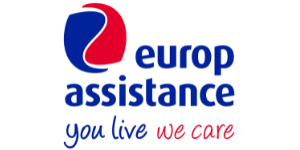
Europ Assistance is a French company offering assistance and insurance services to individuals and businesses. Europ Assistance offers a wide range of services including roadside assistance, medical assistance, travel assistance, and concierge services.
Europ Assistance had the objective of improving and maintaining several internal projects.
These include:
> NCO2: The customer service platform needed modernization. The application, initially developed in .NET, has been redesigned using new technologies such as Node.js, React, MongoDB and Kubernetes to make it light, fast and modern;
> Electronic Invoice Automation – The main objective was to automate the accounting of electronic invoices (in XML format) received from suppliers, thus reducing management time and improving the efficiency of the accounting team.
> Implementation of Withholding Tax for Agents and Brokers: this project required updating accounting systems in compliance with the new tax regulations established by the Revenue Agency. The client wanted a solution that would allow them to meet their new tax obligations in a short timeframe, with a focus on withholding tax management.
> coreDRSA and mSite.NET: the CoreDRSA project represents the suite of services dedicated to roadside assistance and replacement car management through the Core portal. The main objectives were to adapt and optimize the operational management of the information recorded on the Core portal, synchronizing it with the local JUNO database. The mSite.NET portal, on the other hand, allowed end customers to request and manage roadside assistance independently, making the process more efficient and interactive.
> Portals + CRM – The project included the development and maintenance of several applications to enable consultants, business partners and private customers to purchase and manage Europ Assistance products. In addition, the project involved the maintenance of a Dynamics 365 CRM migrated to Azure and the integration of satellite applications necessary for managing complex business flows.
> Hospitality: Blazar Group has built from scratch a Web Rest API service for the provision of insurance coverage services in the auto, person and travel sectors. Technologies used include .NET 6.0, Docker, Kubernetes, and Oracle.
> NCO2 was the remake of this service platform. The application, initially written in .NET, has been redesigned with new technologies: Node.js, React, Mongo DB, Kubernetes to be light, fast and modern.
> Electronic Invoice Automation – We analyzed the various types of electronic invoices, examined the applicable VAT codes based on the nature of the goods or services, and created a mapping between the XML information and the data required by the SAP system. A solution has been implemented that automates the invoice accounting process, integrating the flows with Process Frame and SAP, and ensuring accurate management of VAT codes based on the date of issue and receipt of invoices. Extensive testing was conducted to verify that the system was functioning properly and provide support to end users.
> Implementation of Withholding Tax for Agents and Brokers – The team reviewed and modified existing processes to ensure compliance with new tax regulations. We conducted an in-depth analysis of the methods of application of the withholding tax, modified the accounting records and followed the verification tests. In addition, a training session was prepared and held for end-users on the use of the SAP system for the management of the new tax provisions.
> Portals + CRM – The applications have been developed following a standard frontend-backend architecture. The frontend was entrusted to external suppliers and built in Angular or MVC ASP.NET, while the backend was managed internally, developed on the .NET Framework 4.8. The Dynamics 365 CRM, recently migrated to Azure, has been integrated with other business applications via API, and we have implemented various custom services and a substantial console application in .NET. Maintenance was a key aspect of the project, ensuring the stability and optimization of the company’s functionality.
> CoreDRSA and mSite.NET – Technical solutions adopted for CoreDRSA included the use of GoLang to manage data transcription APIs on Azure Event Hubs, Node.JS for CRUD APIs dedicated to operations management on EventHubs, and .NET Core for vehicle identification, coverage, and service mission management APIs. The portal logic has been synchronized with the JUNO on-premises database. For the mSite.NET portal, we developed WebAPIs in C# for the backend and JS/HTML for the frontend, ensuring a smooth experience for end customers.
The processes related to both portals have been improved through bug fixing, refactoring, performance improvement and graphic optimization.
> Hospitality, a Web Rest Api service for the provision of insurance coverage services in the car, personal and travel sectors and we have chosen modern Microsoft technologies such as .NET 6.0, Docker, Kubernetes and Oracle, the database previously used by Europ Assistance.
The results achieved were:
> Platform modernization: NCO2 and DRSA are now more efficient, lightweight, and aligned with new technologies;
> Global integration: DRSA connects the local database (Country Italy) to the global platform, improving data management and efficiency;
> Enhanced insurance coverage services: Hospitality offers policy services in a new format, ensuring a better customer experience.
> Electronic Invoice Automation – The automation of the accounting process has led to significant time savings for the accounting team, allowing them to focus on more analytical tasks. The project was completed on schedule, greatly improving operational efficiency.
> Implementation of Withholding Tax for Agents and Brokers – The project has been successfully completed, meeting the required deadlines and ensuring the application of the new tax regulations. This allowed the customer to promptly adapt to the new obligations without compromising business continuity.
> Portals + CRM – Although the project was largely focused on maintenance and optimization, the work carried out ensured the stability and operational continuity of the digital platforms used by Europ Assistance for the management of sales and medical consultations. Applications integrated with Dynamics CRM have improved internal process management and customer experience.
> CoreDRSA and mSite.NET – The project has made it possible to centralize and standardize the provision of roadside assistance and replacement car services. Thanks to the optimizations and improvements implemented, the system is now able to manage assistance requests more efficiently, allowing Europ Assistance to add new business partners and scale the service internationally.
SYMPHONY CLAIM

A&A Italia, founded in 2010, is an Italian company operating in the insurance industry, specializing in the management and evaluation of claims with an innovative and technological approach
Symphony Claim is a web-based management application created for A&A Italy, aimed at simplifying the management of expert witness practices. The application allows users to monitor and intervene in the entire practice cycle, from manual creation to automated management of common rules and data lists, to communication with the parties involved and closing of the files.
One of the main challenges faced was the uncertainty of requirements: the specifications, in fact, changed repeatedly during development, requiring continuous revisions of functionality and delaying release to production. This variability highlighted the need for particularly flexible and effective time and priority management.
To meet these needs, a modern web architecture was adopted with Angular as the main framework for the frontend, augmented by Angular Material to ensure an intuitive and responsive user interface. Real-time communication between frontend and backend was made possible through the integration of SignalR, while Microsoft Authenticator provided secure management of user authentication. On the server side, technologies such as Redis Cache, Azure Logic App and C# were chosen for data management and process automation.
The team worked following the Agile methodology, with bi-weekly sprints, to be able to react quickly to constantly changing requirements.
One of the most significant issues was optimizing integration logic across departments, ensuring a smooth experience for users and reducing request processing time. Among the challenges faced, advanced customization of interfaces and management of complex workflows required tuning work to ensure stability and performance, while ensuring a polished design and intuitive interface for a better user experience.
Modern Look and Feel for insurance products
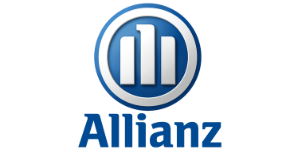
Allianz is a German insurance company that offers insurance services to individuals and businesses worldwide. Founded in 1890, it is one of the largest companies by market capitalization and is present in more than 70 countries worldwide.
The need for Allianz is for a modern graphical user interface for the company’s core insurance products, namely Allianz Ultra Health, Home and Wealth, and in Allianz Ultra Business.
The development was carried out in collaboration withother suppliers, who took care of the back-end, infrastructure and database layers.
All these applications allow the insurer to configure the policy for the customer in all its various aspects and have several additional functionalities, including:
> Printing: generation of policy-related documents.
> Presentation: creation of presentation materials for customers;
> Predefined Policies: use of standard policies to simplify configuration;
> Exception Management: possibility of managing exceptions or specific changes.
> Discount Management: application of customised discounts.
The technologies used for the front-end include Angular 11 and Ngrx for state management. For development, Jest was used for unit testing and Mirage.js for managing stand-alone front-end development, reducing bugs and facilitating local development.
The results achieved are:
> Interdisciplinary collaboration: collaboration between different teams allowed the integration of specialised skills for the various layers of the software, ensuring a more robust and reliable end product.
> Advanced configurability: the possibility for insurers to customise policies in all their aspects allows them to offer a service tailored to specific customer needs.
> Operational efficiency;
> Software quality: thanks to the technologies employed.
> Medical
Optimisation of contract management processes
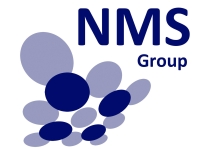
NMS Group is an organization committed to industrial innovation and management of the entire pathway of new pharmaceutical research and development, including for third parties. The mission of NMS Group is to discover and develop the new molecules and therapeutic strategies that will be able to represent the personalized care of cancer patients.
NMS Group contacted us following the development of two canvases on PowerApp with the task of concluding the two applications by performing the eventual testing and deployment to production: Contract Manager and Publication Disclosure.
We are currently still working to make evolutions in order to improve and expand their functionality.
Both of them were created with the purpose of digitizing and having all the necessities of the respective workflow within their O365 tenant, but some among the documents remained anchored for years without the eventual publication due to negligence on the approval flow given the lack of a system to monitor.
Contract Manager manages the approval of new contracts and procurements with external suppliers: it creates the new contracts and adds any approvers of the specific contract.
The final product presented by Blazar brings the benefit of optimized internal contract flow management through the implementation of solutions designed on:
> PowerAutomate for system process automation;
> SharePoint and Azure Active Directory for document cataloging;
> PowerApps for the front-end part used by the end customer.
Publication Disclosure is used for the approval of scientific papers, treatises and research to be published internally within the company. The technologies used are: Power Apps, Power Automate, and Sharepoint.
In addition to an initial bug fixing phase on the application, a number of evolutions were approved by the client and implemented to facilitate user interaction and understanding of the document review environment including: a progress bar, various intermediate screens, more efficient customization of role definition on Sharepoint (to speed up the document review and approval process), and email automation via Power Automate.
Thanks to this solution, NMS Group achieved:
> Efficiency: optimised contract management processes and reduced review times;
> Transparency: accurate monitoring of documents and approval flows;
> Improved user experience: intuitive and customised user interface.
Optimisation of tender management

Carl Zeiss is a company that manufactures lenses for both eyeglasses and sunglasses. Its products include monofocal, bifocal and progressive lenses, as well as photochromic (which change color based on sunlight) and polarized lenses.
The existing process involved the manual sending of e-mails between the various actors involved in the tendering process. All necessary documentation was attached to the e-mails, making the process lazy and prone to errors.
> Creation of an automated process (Tender Flow)
> Manual creation via form: A new record is created manually via a form in SharePoint. .
> Automating steps: Using Power Automate, the flow regulates and manages the creation of tasks in Microsoft Planner. These tasks are assigned to the persons involved according to their specific department.
> Monitoring of tasks: The flow listens for tasks. As they are completed, the process proceeds to the next steps.
> Creating documentation on SharePoint
> E-mail notifications: During the process, the system sends e-mail notifications to the users involved. The notifications are customised according to the task assignees and the user profiling matrix.
Thanks to this new system, Zeiss can work with greater cleanliness and speed during tenders. In addition, the customer has the possibility to make a retrospective on past tenders. The tables and lists on SharePoint, together with the reports in Power BI, provide detailed information, including any delays (e.g. delays in completing a task).
SHARE OF SELF
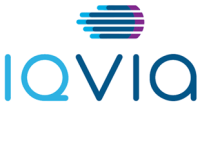
IQVIA is a leading global provider of advanced technology solutions and clinical research services for the life sciences industry. With its solutions, it helps companies and institutions transform the healthcare system and improve patients’ lives day by day.
The pharmaceutical industry requires constant monitoring of shelf space in pharmacies. However, vendors still have to manually check the spaces occupied by drugs of different brands during regular pharmacy visits. This process is time-consuming and subject to human error.
Blazar Group proposed Share of Self, an innovative application that simplifies shelf space management and supports salespeople in pharmacy visits.
Features:
> Capture shelf images via tablet;
> Time savings compared to manual verification;
> Accurate images to assess spaces;
> Respect for the spaces agreed with the pharmacies;
> Tracking of the occupied space: ccalculating the percentage of occupied space for each product;
> Uploading data to the IQVIA management system for further analysis.
Share of Self represents a strategic investment for IQVIA, optimising shelf space management and improving collaboration with pharmacies. The aim is to reduce verification times, provide reliable data and ensure the constant visibility of pharmaceutical products.
> Publishing
Centralising information management with Cloud Native portals
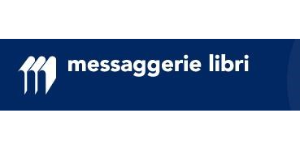
Messaggerie Libri is an Italian company engaged in the distribution of books and publishing products. Founded in 1945, Messaggerie Libri is now one of the leading Italian companies in the sector. The company is based in Milan and has a network of warehouses and branches throughout Italy.
The Messaggerie Libri system was developed to support the lifecycle of books by providing different services to different types of users, including title anaglaysis and consultancy. The system automates manual operations and includes a CMS for permissions and content changes.
The advantage of this system was that it could automate most of the work normally done manually.
Part of the system includes a CMS, which allows administrators to set access rights to specific sections and edit their content. For example, the company’s latest news, best-selling titles or simply a description of the various services offered.
The main project is a web portal for publishers, bookshops and employees of Messaggerie Libri, offering customised services for book management.
The second project is a portal for editing user information. The Blazar Group team is using the following technologies:
> CMS in C# (Umbraco)
> Applications in React
> API with ASP.NET Core
> PluginController of Umbraco
> Azure Functions
> Database SQL Server
> DevOps
> Boomi
> SAP
Thanks to the development of the application, the following results have been achieved:
> Personalisation: publishers, bookshops and Messaggerie Libri employees can access specific services for book management, adapted to their needs;
> Efficiency: the automation of manual operations simplifies data and content management;
> Centralisation: the centralised platform allows user information to be edited in one place;
> State-of-the-art technology: the use of modern technologies such as CMS in C# (Umbraco), React, APIs with ASP.NET Core, Azure Functions, SQL Server, DevOps, Boomi and SAP guarantees an advanced and scalable development environment.
Lift-and-shift of publishing platforms

RCS MediaGroup is one of the leading international multimedia publishing groups. Founded on principles of freedom, fairness and pluralism. RCS MediaGroup operates with stable and independent leadership.
> Telco
Open-source innovation in fibre optic management
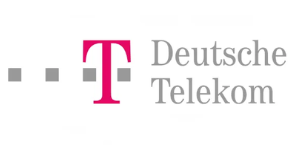
Deutsche Telekom is a German telecommunications company. Founded in 1995, the company offers fixed-line and mobile telephone, Internet and pay television services.
As a response to the competition in the telecommunications sector, Deutsche Telekom launched an innovation initiative to enhance the efficiency and flexibility of its fibre-optic network. The goal was to create an open source management system, fully customisable and independent from external providers, for greater autonomy in operations.
The project involved the collaboration of 8 multidisciplinary teams, led by dedicated project managers, focusing on software, infrastructure, systems and networking. Blazar made an essential contribution, working in synergy with Deutsche Telekom’s DevOps team for the Life Cycle Management of servers and the configuration of Kubernetes, leveraging its expertise in open source and DevOps.
Technologies:
> Linux
> Docker
> Kubernetes
> Ansible
> DevOps
The results achieved were:
> Agile Development: Rapid implementation of new functionalities thanks to Kubernetes.
> Reduction of Costs: Elimination of outsourcing costs through in-house development.
> Control and Flexibility:Total autonomy in system management, with the possibility of integration and customisation.
> Open Innovation: Collaboration with the open source community for a future of continuous innovation.
Strategic management for marketing campaigns
The client, one among the greatest companies in media, needed a customised platform to optimise the planning, creation and coordination of its marketing campaigns.
The solution had to be solid, easily accessible and easy maintenance over time.
Blazar developed a customised platform that allowed the client to ccentralise the management of all marketing campaigns in a single system, ssimplify the campaign creation and approval process, and mmonitor real-time campaign progress, as well as generated detailed reports on results. The technologies used are:
> Power App Canvas
>Integration with Dynamics365
> Dataverse
> Flows Power Automate
> Integration with SharePoint
Thanks to the cooperation with Blazar, the customer was able to:
> Improving the efficiencyof the marketing process
> Increase visibility and effectivenessof campaigns
> Achieve a higher ROI
Innovative Monitoring of 5G Networks
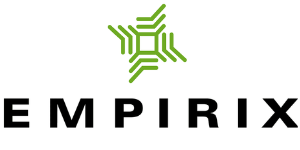
Empirix is a U.S. based company that focuses on testing and monitoring the performance of telecommunications networks. The company offers a wide range of telecommunications network performance management products and services.
In the era of telecom innovation, Empirix selected Blazar to develop a revolutionary application for the infrastructure monitoring of 5G networks, aiming for a system that offered real-time analysis and predictive visibility.The synergy between Empirix and Blazar resulted in an agile and integrated working environment, where every sprint and task, managed through Jira, helped shape the future of 5G monitoring.
Below are the phases that characterised this project:
> Analysis: A deep dive into 5G technical specifications and identification of critical network parameters
> Software Development: The creation of a robust monitoring system in C++, using Protocol Buffers and a high-performance database to handle massive volumes of information.
> Integration and Visualisation: Processing of data in JSON and CSV formats for smooth integration and intuitive visualisation of network performance.
Technologies Used:
> C++
> Protocol Buffers (Google)
> Redis database
> JSON
> Jira (Atlassian)
The 5G network infrastructure monitoring application, realised through the partnership with Blazar, ensures a more efficient and reliable service for customers, resulting in numerous benefits:
> Real-Time Monitoring: Unprecedented visibility into 5G network performance.
> Predictive Analysis:Prevention of problems and optimisation of performance through data analysis.
> Flexibility and Scalability: A system ready to evolve with the 5G network.
> Intuitive Interface: A simplified user experience that turns data into clear insights.








